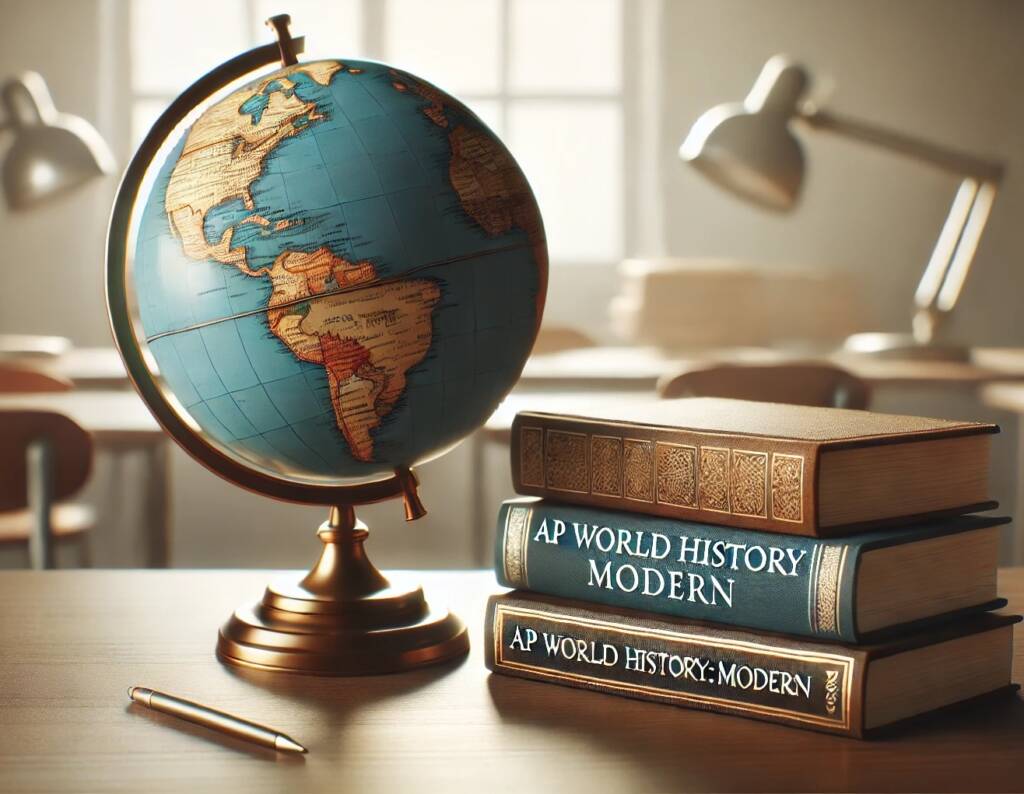
World History/World History Honors

World History is a broad survey of the most significant world events since 500 CE, a period of roughly 1,500 years.
Segment One focuses on the period 500 to 1500, which has been called the Middle Ages, between the end of the Roman Empire and the Modern Age. Review essential information about what made the Roman Empire so significant, as well as essential information about Judaism and Christianity as background to the rise of the third major monotheistic religion, Islam. Study the earliest civilizations of sub-Saharan Africa and the Americas, and then wrap up the segment with three simultaneous major events: the Age of Discovery, Protestant Reformation, and Scientific Revolution. The Middle Ages ended with a tornado of changes!
In Segment Two, focused on 1500 to present, you’ll learn about advancements in science and thought during the Age of Enlightenment, as well as the social and political revolutions that followed as a result. As you meander through the 19th century, you will learn about the transformation from an agricultural to an industrial world and the many changes that resulted from that shift. Then, learn about the interconnectedness of nationalism and colonialism and the two massive world wars that were the end result. As you explore the modern era, students learn about developments in today’s world and the implications that historical events have on each of us.
Major Topics and Concepts
Segment 1:
Module 01 – Medieval Eastern Europe, North Africa, and Middle East
- Roman Empire
- Byzantine Empire
- Monotheistic Religions
- Golden Age of Islam
Module 02 – Medieval Western Europe and East Asia
- Medieval Society and Arts
- The Crusades
- Medieval Japan
Module 03 – Medieval Sub-Saharan Africa and the Americas
- Rise of African Kingdoms and City-States
- Major Civilizations of Mesoamerica and the Andes
Module 04 – Age of Rebirth, Reformation, and Discovery
- Rise of the Italian City-States
- Renaissance
- Reformation and Counter-Reformation
- Age of Discovery
- Columbian Exchange
- Slavery
Segment Two:
Module 05 – The Enlightenment and Revolutions
- European Geography
- Constitutional and Absolute Monarchies
- Scientific Revolution
- 20th Century Science
- Enlightenment
- French Revolution
Module 06 – 19th Century Changes
- 19th Century Latin American and Caribbean Independence Movements
- Industrial Revolution
- Economic and Political Ideologies
- Imperialism
- Italian and German Unification
- Modern Reform Movements
Module 07 – The World at War and the Fires Between
- World War I
- Great Depression and Rise of Totalitarianism
- World War II
- Genocide
Module 08 – The Modern Era
- Cold War and Proxy Wars
- Decolonization and New Nationalism
- Collapse of the Soviet Union
- Globalization
- Terrorism
Competencies
Byzantine Empire
Students will demonstrate an understanding of the Byzantine Empire by comparing the major beliefs of monotheistic religions, describing the achievements of the Islamic Golden Age, and summarizing the impact of the Byzantine Empire.
Medieval Sub-Saharan Africa and the Americas
Students will demonstrate an understanding of Medieval Sub-Saharan Africa and the Americas by comparing sub-Saharan African kingdoms and empires, comparing Mesoamerican and South American civilizations, and describing the influences of Mesoamerican and South American civilizations.
Medieval Europe and Japan
Students will demonstrate an understanding of medieval Europe and Japan by comparing feudalism in Europe and Japan, explaining the impact of religion on Medieval society, and describing achievements during the Medieval period.
Postmedieval Ideas
Students will demonstrate an understanding of postmedieval ideas by describing the effects of the Black Death, analyzing the impact of the Renaissance, summarizing the effects of the Age of Exploration, and explaining forms of forced labor beginning in the 13th century.
The Enlightenment
Students will demonstrate an understanding of the Enlightenment by comparing the development of constitutional monarchy and absolute monarchy, explaining the importance of the Scientific Revolution, and analyzing the impact of Enlightenment ideals.
19th-Century Societal Changes
Students will demonstrate an understanding of 19th-century societal changes by describing the impact of the Industrial Revolution, explaining the causes and effects of imperialism, and summarizing the influences of 19th-century reform movements.
The Modern Era
Students will demonstrate an understanding of the modern era by explaining the impact of the Cold War, describing the development of nationalist conflicts, and analyzing the consequences of globalization.
The World Wars
Students will demonstrate an understanding of the world wars by explaining the development of the world wars, analyzing the crime of genocide, and describing the impact of World War II.
